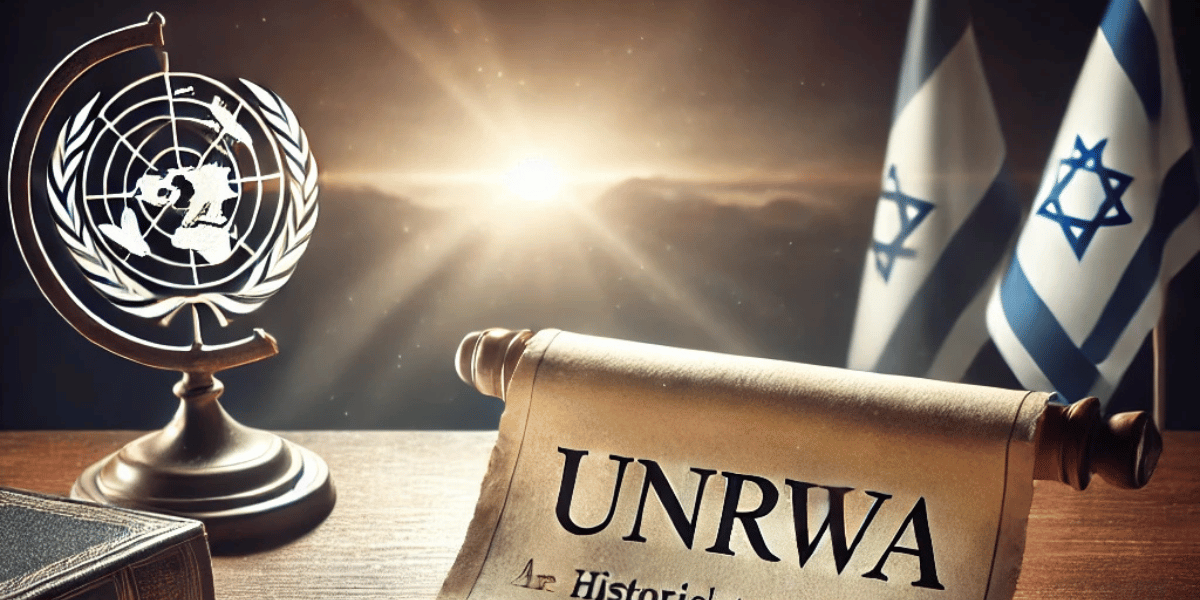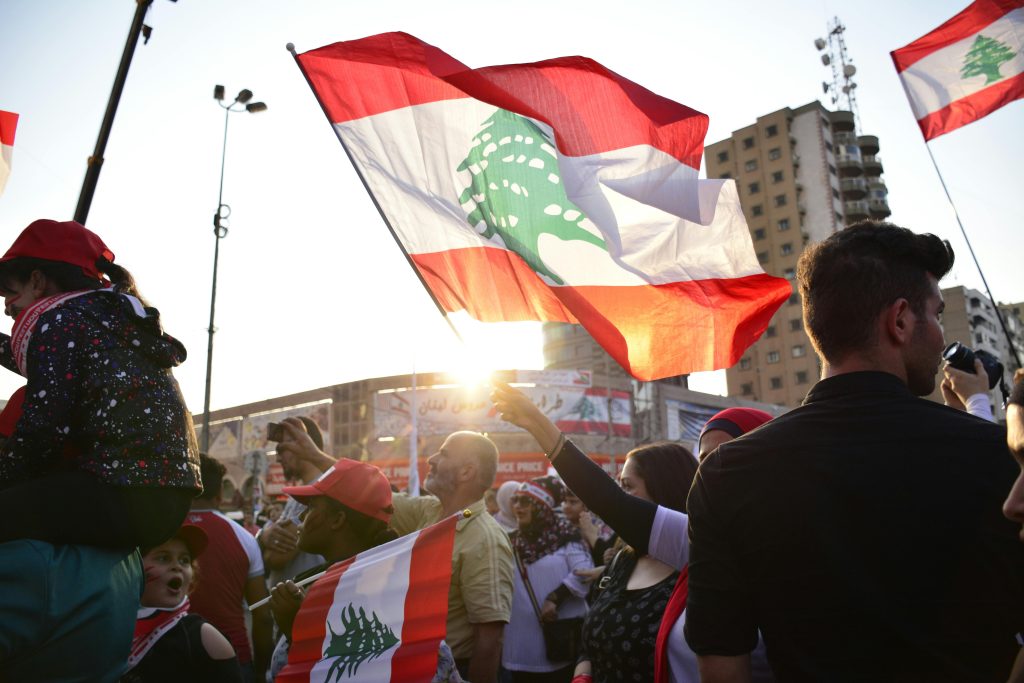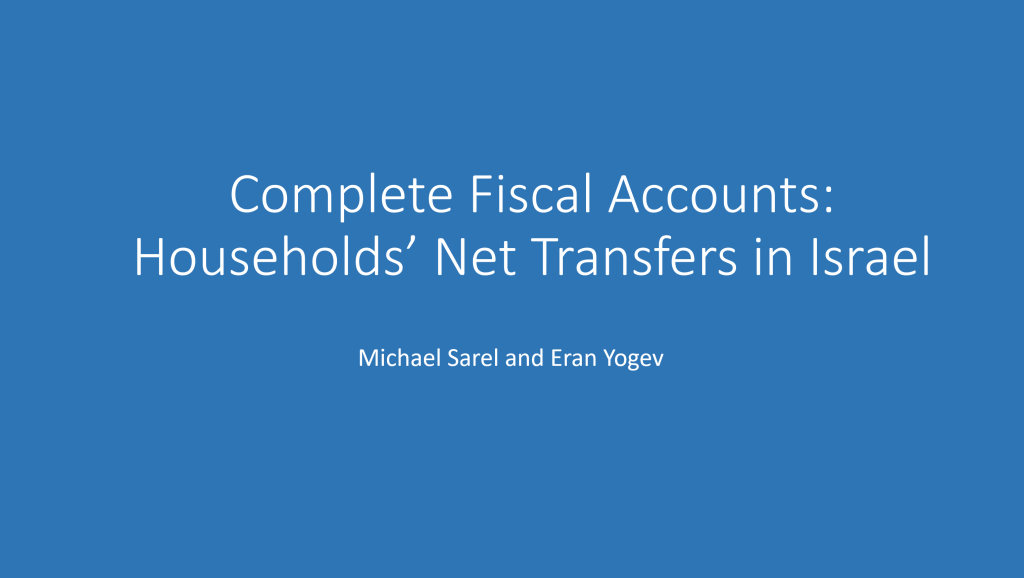For the first time since 1967: the cancellation of the historic agreement and the enactment of new legislation pave the way to sue the organization for damages.
Background: New Legislation against UNRWA
On September 28, 2024, a 92-10 majority of the Israeli Knesset passed two bills outlining the relations between Israel and the United Nations Relief and Works Agency (UNRWA). The first bill forbids UNRWA activity within Israel’s sovereign territory, including East Jerusalem. The second repeals the agreement signed in 1967 between Israel and UNRWA that allowed the organization to operate in Israeli-controlled territories (Judea, Samaria and Gaza) and further forbids any official contact between the Israeli government and UNRWA.
Norway is preparing to request an ICJ opinion from the UN General Assembly regarding Israel’s obligations towards UNRWA. The legislation has attracted sharp criticism from the UN, the European Union and leading states as a violation of Israel’s international obligations, especially the Convention on the Privileges and Immunities of the United Nations.
UNRWA’s diplomatic immunity is now being scrutinized by a US federal court following a lawsuit filed by victims of the October 7 massacre. A careful analysis of the historical record clearly demonstrates that without a special agreement, the UN convention does not apply to UNRWA. In any case, systematic support of terrorism constitutes a breach of UNRWA’s mandate and is not covered by “functional immunity”. It is therefore possible to hold UNRWA criminally and civilly liable in Israeli, American, and other domestic courts. This position is supported by a comprehensive amicus curiae brief filed by senior experts on law and security in a US court.
History’s Lesson: Qualified Immunity
UNRWA was established in December 1949 by UN Resolution 302 (IV). Article 17 “calls upon” states to grant UNRWA the same privileges and immunities granted to the United Nations Relief for Palestine Refugees, the emergency aid agency that had been established in November 1948. The “encouraging” language, coupled with the lack of such phraseology in similar resolutions establishing subsidiary organs point to immunity not being automatic. Compare Resolution 302 (IV) with General Assembly Resolution 428 (V) establishing UNCHR that lacks such language, and with Resolution 410 (V) establishing the United Nations Commission for the Unification and Rehabilitation of Korea, that uses obligatory language (“shall be accorded”).
Additional, perhaps surprising testimony to the fact that UNRWA’s immunity was never assured is the following: In the 1950’s, all regional states signed special agreements with the organization to regulate its status. Egypt was first, and in 1950 granted UNRWA officials diplomatic privileges – but only by explicit agreement. Jordan and Lebanon followed suit, each with its own special agreement stipulating the exact immunities the organization would enjoy. The fact that these separate agreements were required is instructive of the fact that UNRWA’s immunity was not automatic – it was conditioned on the goodwill of the host countries. What is granted by consent can be subsequently withdrawn.
The Turning Point: The Comay- Michelmore Agreement
After the Six Day War, an exchange of letters between the Israel Foreign Ministry and UNRWA’s Commissioner-General, known as the Comay- Michelmore Agreement, granted the organization the approval to continue its operations in the territory taken over by Israel. Among other privileges granted to UNRWA, the agreement determined that the 1949 Convention would govern the relations between Israel and UNRWA regarding UN privileges and immunities. Michael Comay from the Israel Foreign Ministry made it clear that the exchange of letters was a temporary arrangement open to replacement or cancellation. The UNRWA Commissioner-General Lawrence Michelmore affirmed the provisional status of the agreement and recognized that privileges could be restricted according to security considerations.
In a UN Secretariat 1968 legal opinion issued by the Office of Legal Affairs, the UN reiterated host states’ right to cancel their consent to UNRWA operations in their territory. The question being addressed was whether UNRWA was required to align its educational program with the education laws of a host State. The legal opinion confirmed that as a UN organ, UNRWA was not subject to the sovereignty or jurisdiction of host states and thus could not be obligated to follow its education program. However, the opinion closed with saying that should this be interpreted as incompatible with the sovereignty of the host State, the latter was always free to cancel its consent to UNRWA operations: ” Moreover, in final analysis, it is certainly true that a General Assembly subsidiary organ can continue to operate in a State’s territory only with its consent. The host State is free to determine that, whether because of a belief that its sovereignty is prejudiced or for any other reason, the operations on its territory must cease”.
Furthermore, a series of judicial rulings in Egyptian and Jordanian courts from the 50’s through the 70’s reveal disagreements regarding UNRWA’s immunity. In 1954, a Jordanian court granted a former UNRWA employee a sum he sued for under government regulations, which he succeeded to collect by imposing a lien on UNRWA funds held in a bank. In Husseini v. UNRWA Representative (1957), an Egyptian court in Gaza found that UNRWA has a legal identity separate from the UN, and is not covered by the Convention. In 1970, a District Court in Gaza affirmed UNRWA’s immunity from lawsuits, despite a dissenting opinion to the contrary. All this points to the fact that UNRWA’s immunity is not clear-cut as a matter of international law.
Following the cancellation of the Comay-Michelmore agreement, then, Israel is no longer obligated to grant UNRWA the privileges detailed in the 1946 Convention on the Privileges and Immunities of the United Nations. The agreement was cancelled due to UNRWA’s severe and extraordinary violations.
Exposing Ties to Terrorism
The infiltration of Hamas and other terror organizations into UNRWA has been an open secret for quite a while. Already back in 2004, UNRWA Commissioner-General Peter Hansen admitted to the Canadian Broadcasting Corporation that: “I am sure that there are Hamas members on the UNRWA payroll, and I don’t see that as a crime”. According to the Wall Street Journal, an UNRWA teacher led the October 7, 2023 attack on the Be’eri kibbutz, during the course of which ninety-seven Israelis were slaughtered and twenty-five abducted. According to other reports, Israeli hostages who were freed under the December-January agreement had been held by UNRWA teachers. An UNRWA teacher’s passport was found on the body of Hamas leader Yahya Sinwar. The Hamas commander Fatah Sharif, recently killed in Lebanon by an Israeli strike, was an UNRWA school principal and head of its teachers’ association in Lebanon. Recently seized documents in Gaza show how Hamas and the Islamic Jihad operate out of UNRWA schools. These cases are only the tip of the iceberg.
The Legal Framework: The Bounds of Immunity
Although UNRWA supporters wave the banner of diplomatic immunity as though it were an impenetrable magic force field, the legal reality paints a very different picture. While states enjoy immunity derived from customary international law – i.e., the longstanding legal tradition that does not require states’ consent – international organizations are dependent on specific agreements with their host states. European courts from Belgium to Italy have repeatedly stressed this point in landmark decisions in the past two decades. The conclusion is clear: without a valid agreement with Israel, UNRWA cannot hide behind the claim of immunity.
Many scholars criticize both de facto or de jure absolute immunity, on grounds of such immunity destabilizing the rule of law and fostering an environment where human rights can be violated with impunity, facilitating a culture of misconduct and unaccountability. When cases of sexual abuse committed by UN forces in African states were discovered, the UN Secretary-General commissioned an independent review panel to investigate. Their report decried the “culture of impunity” stemming from the lack of accountability mechanisms. Compare this response to current Secretary-General António Guterres, who shamelessly covers for UNRWA’s systematic violations.
Article 105(1) of the UN Charter states: “The Organization shall enjoy in the territory of each of its Members such privileges and immunities as are necessary for the fulfilment of its purposes”. Terrorism, aiding terrorism and financing terrorism are all international crimes, according to both customary international law and treaty law. Since 1968, nineteen international treaties have been drafted to combat the various components of terrorism. Financing terrorism or committing acts of terror are not part of the UN’s objectives and no state ever meant to grant immunity for such actions. It is inconceivable that a UN organ should take advantage of the privileges it was granted by a state to murder and kidnap its civilians, and expect said state to sit on its hands and do nothing.
As the ICJ wrote in its 1980 opinion:
“International organisations are subjects of international law and, as such, are bound by any obligations incumbent upon them under general rules of international law”.
Finally, the American Supreme Court ruled in Jam v. International Finance Corporation that the immunity international organizations enjoy is not absolute. The Court compared their immunity to that of foreign states, which is qualified immunity. Today, both Canada and the US recognize the financing of terrorism as an exception to states’ sovereign immunity. In 1996, the American Congress amended the Foreign Sovereign Immunities Act to allow victims of terror to sue senior officials of foreign states designated by the State Department to be state sponsors of terrorism.
The Congress expanded this exception in 2008, to permit lawsuits against the states themselves and not only their officials. The Justice Against Sponsors of Terrorism Act (JASTA) was enacted in 2016, further expanding the ability to sue not only main actors but those who aided and supported terrorism. In March 2012, the Canadian parliament passed the Justice for Victims of Terrorism Act (JVTA), amending the law regarding state immunity to permit filing lawsuits against state sponsors of terrorism, as so designated by the Minister of Foreign Affairs. In May 2024, Senator Ted Cruz introduced the LIABLE Act, clarifying that international organizations are not immune from US courts’ jurisdiction in certain terror-involved cases. The law is expected to pass in the coming months.
Legal Precedents Around the World
On March 12, 2024, the Israeli Knesset passed a law allowing victims of terror to sue the perpetrators, financial backers or supporters of acts of terrorism. In the 2017 Mentin ruling, the Israel Supreme Court laid out three dimensions to the Palestinian Authority’s involvement in terror – (a) ideological (the PA sanctioned acts of terrorism as a legitimate and necessary element in the struggle against Israel, thus encouraging the use of terrorism as a tool to advance their goals); (b) financial support (the systematic and consistent practice of incorporating activists involved in the struggle against Israel into their “national security” apparatus, even when it was clear to senior officials they were involved in acts of terrorism against Israel); and (c) the practical aspect (the PA’s national security apparatus and “general intelligence” granted direct and indirect aid to terrorist infrastructure and action). The Court further granted punitive damages after it was proven that the terror attack was causally connected to the military training the terrorist had received from the PA, as well as the violent content he was taught.
These dimensions are equally applicable to UNRWA’s involvement in the October 7 and other terror attacks. UNRWA provides direct financial aid to Hamas, allows its facilities to be used for terrorist activity, and grants inspiration and ideological backing for terrorism via its education system that consistently incites jihad, antisemitism and murder.
The immunity granted to UNRWA was never meant to be an open check. It was based on a provisional agreement – the Comay-Michelmore agreement – defined as cancellable. As far back as 1968, UN legal counsels themselves recognized hosts states’ right to withdraw their consent. Now that the agreement has been duly cancelled, UNRWA has no basis to any claim. To paraphrase Justice Marshall, “The power to sue is the power to destroy”. UNRWA and its officials must be held accountable for their decades of cooperation with Hamas and other terror organizations.
first published in Hebrew in Mida




